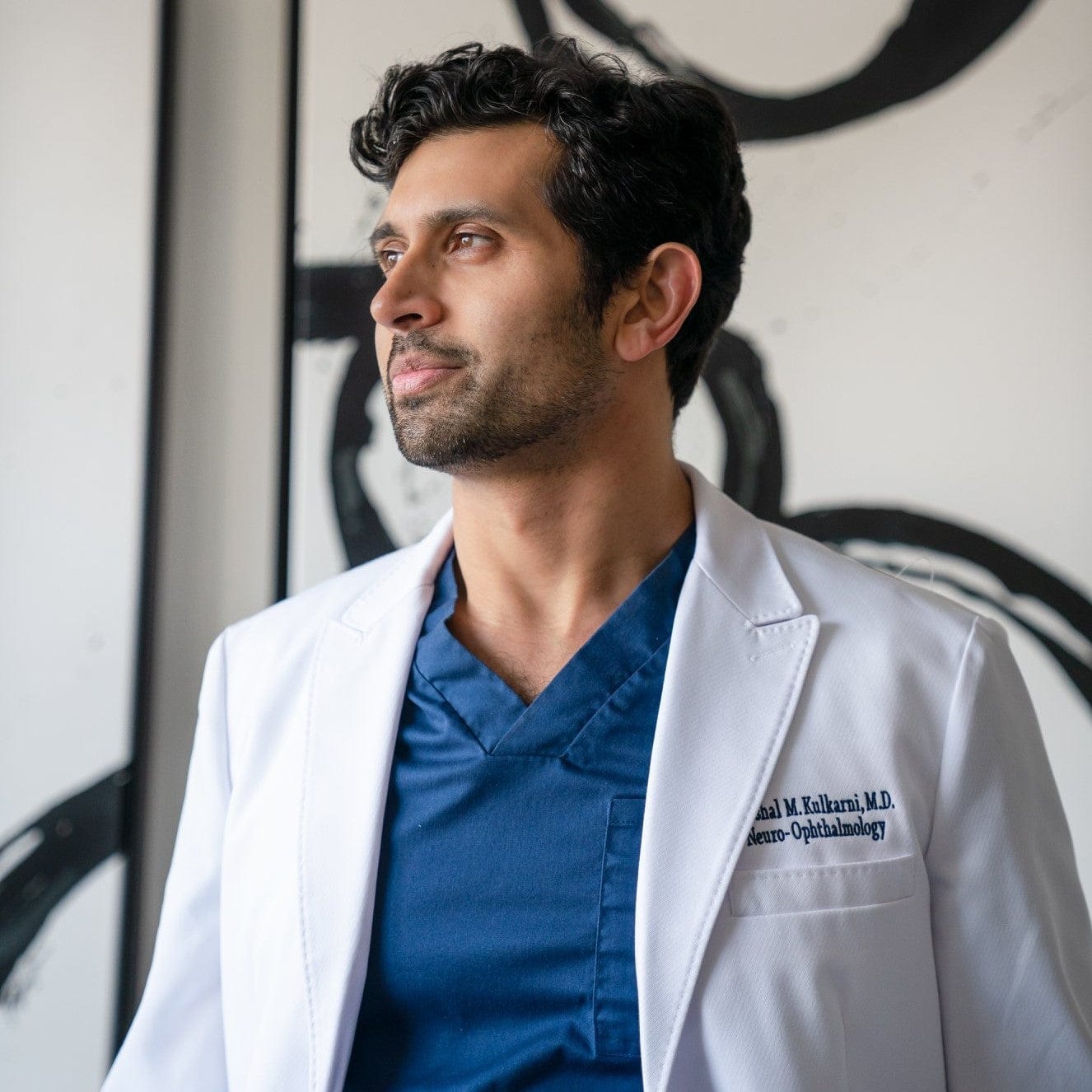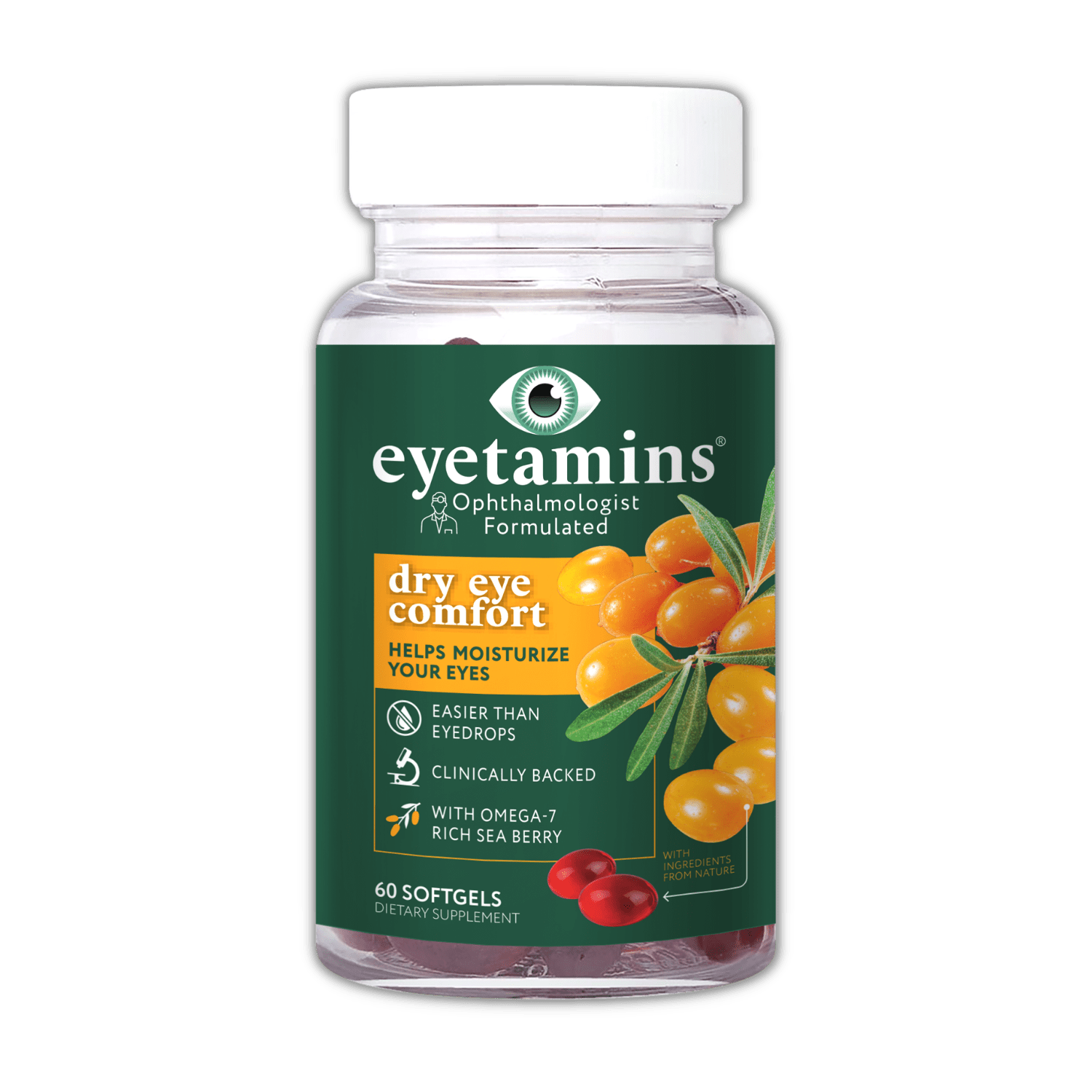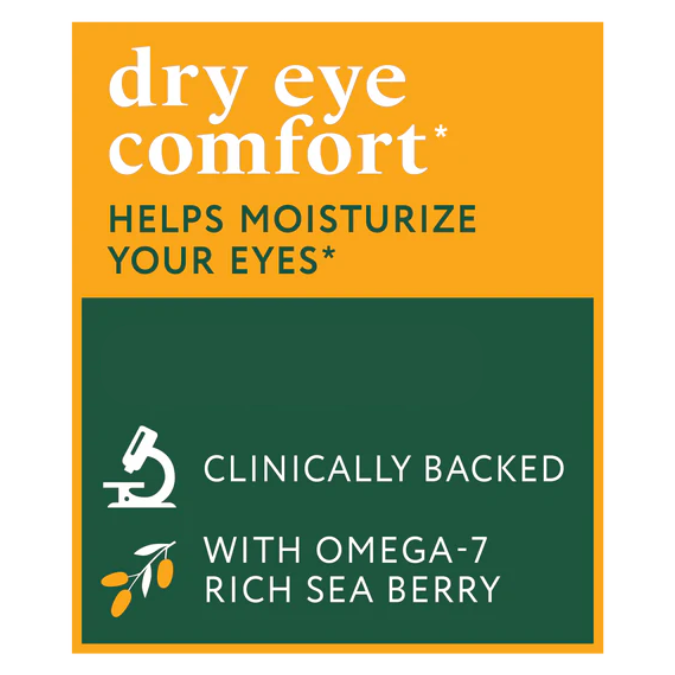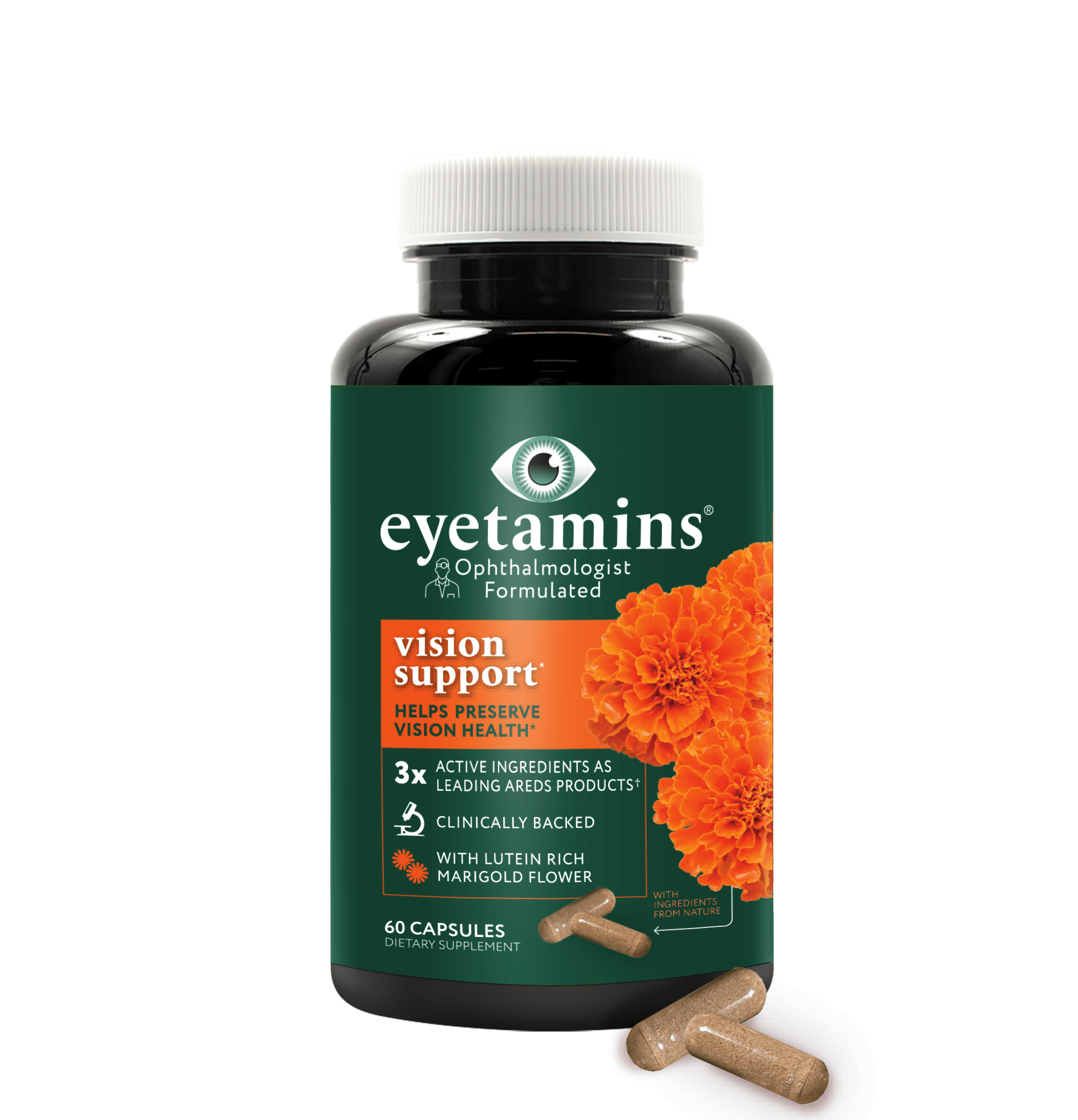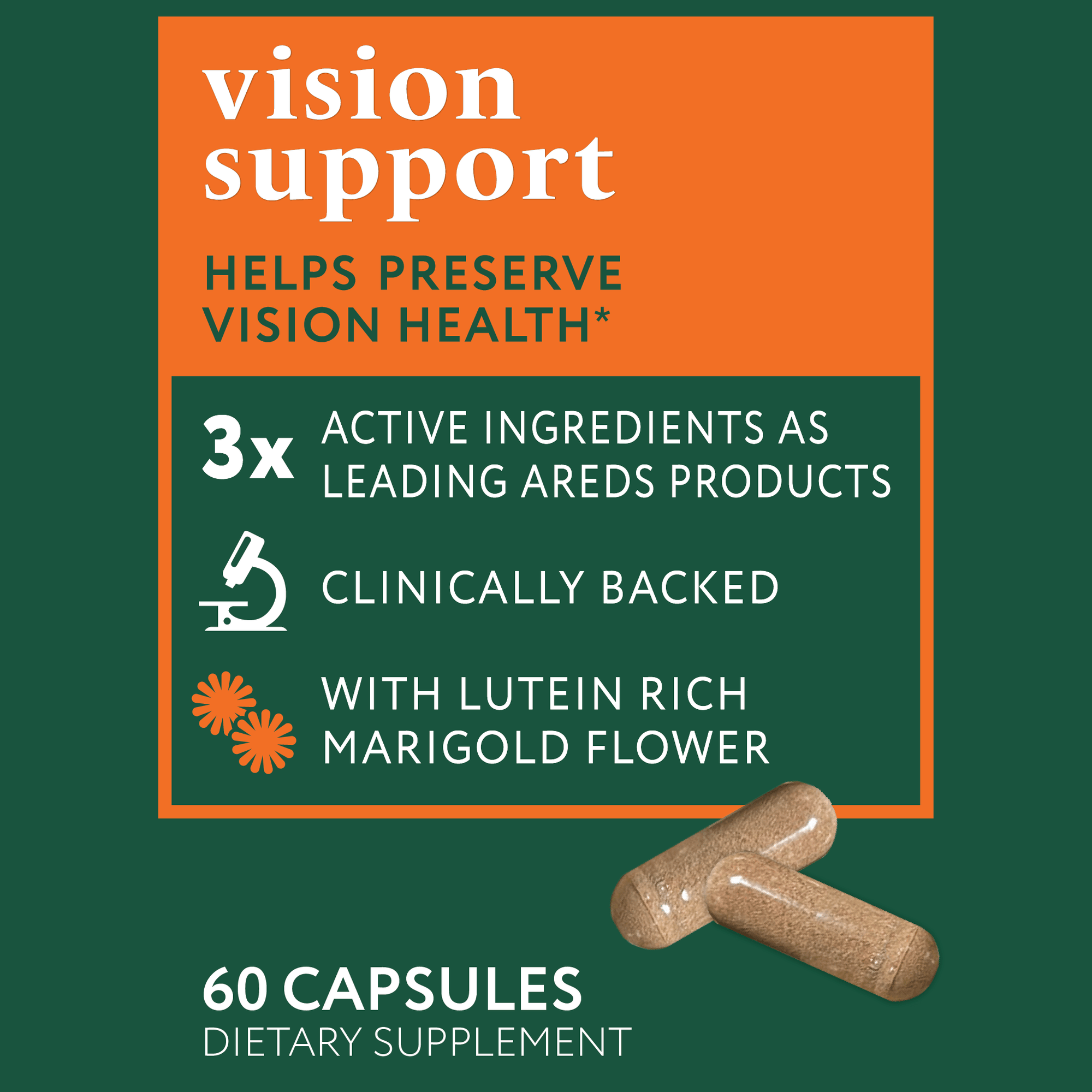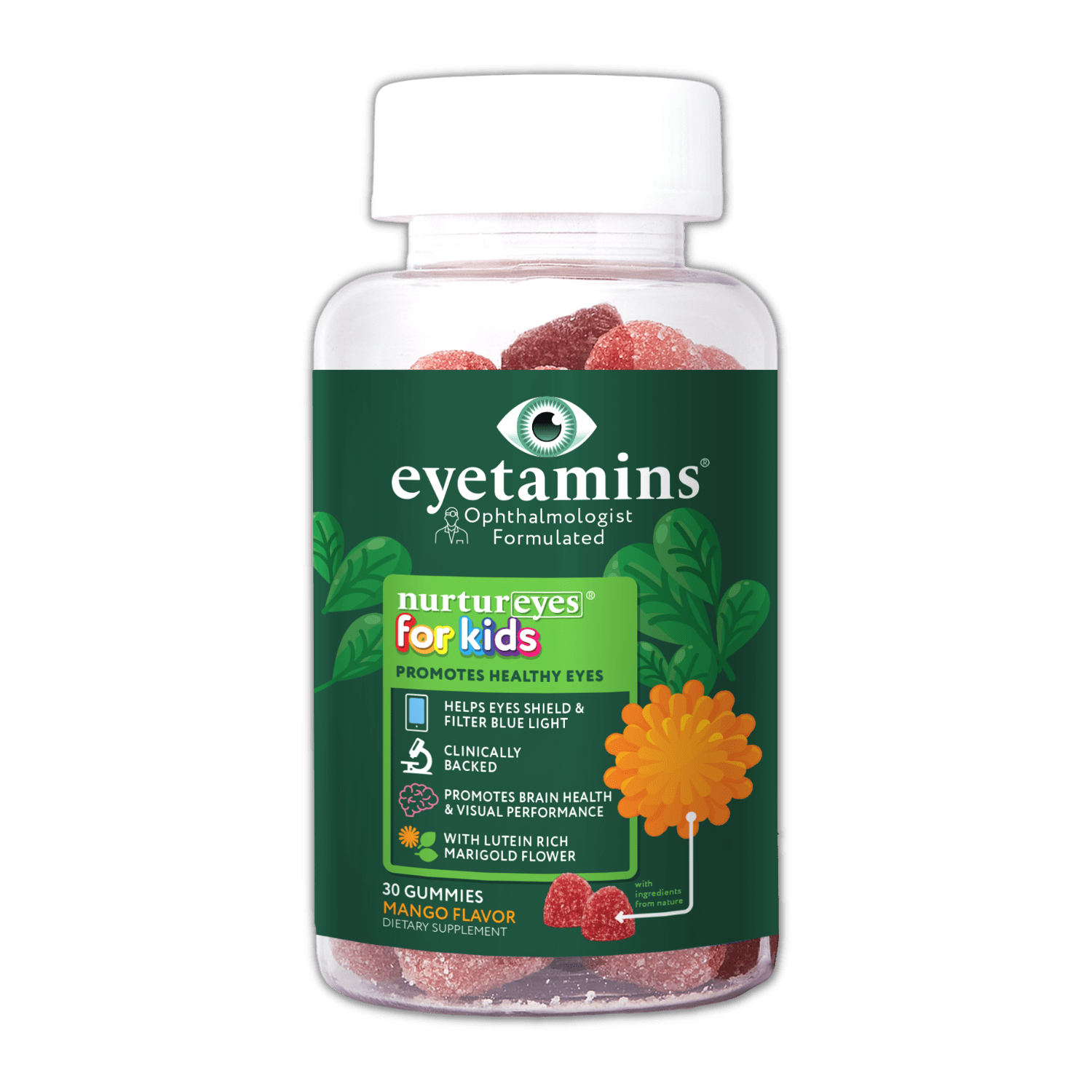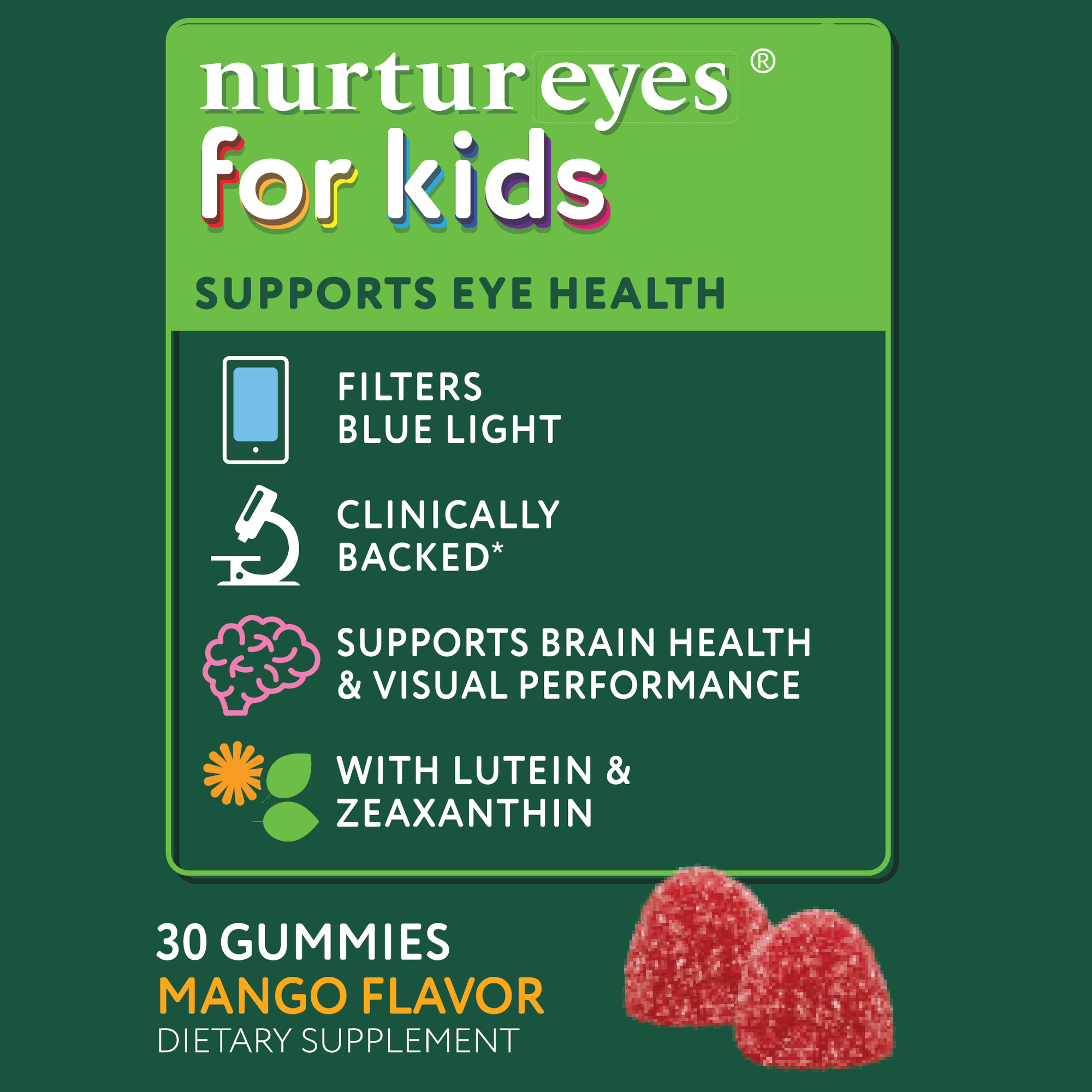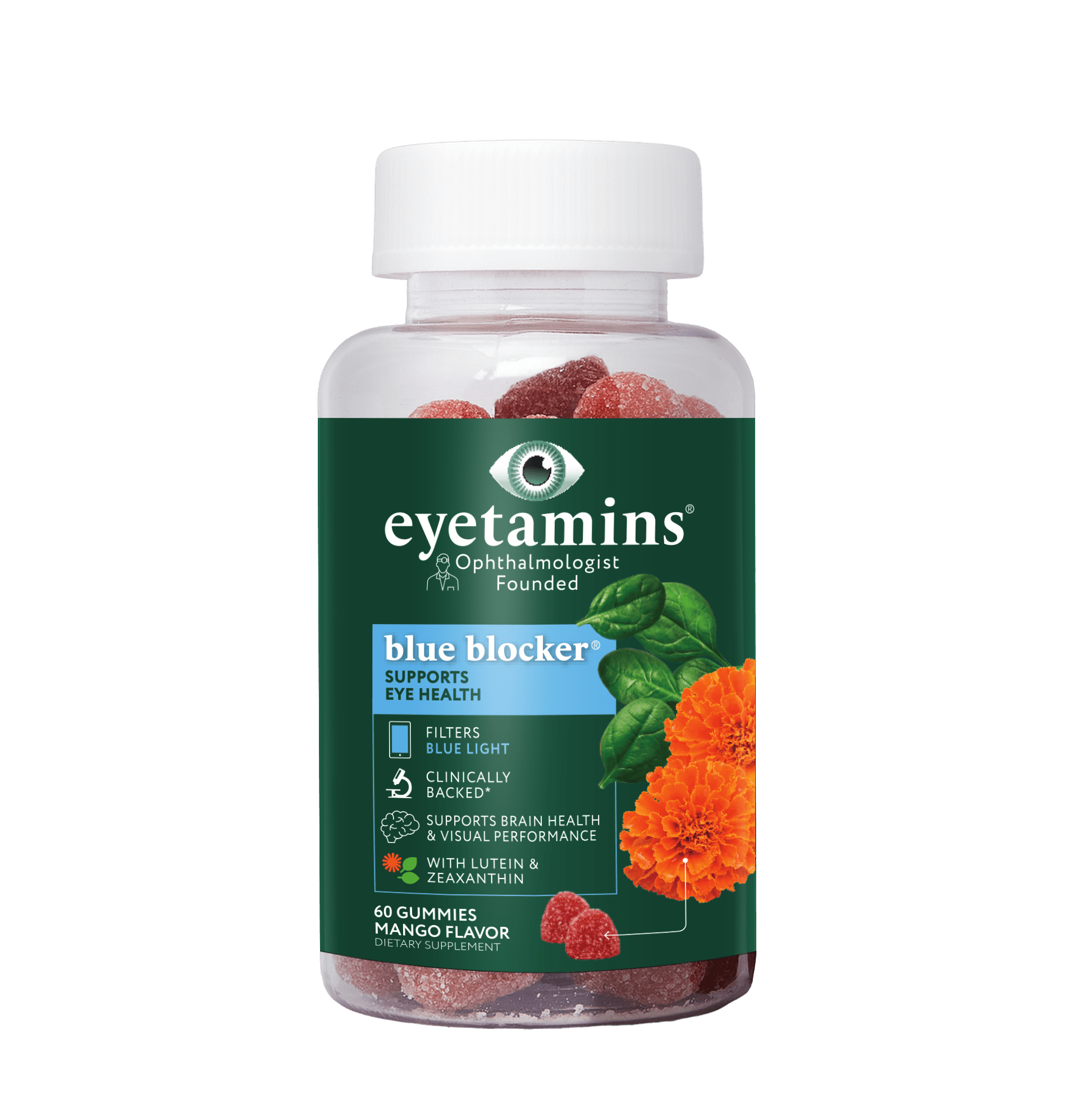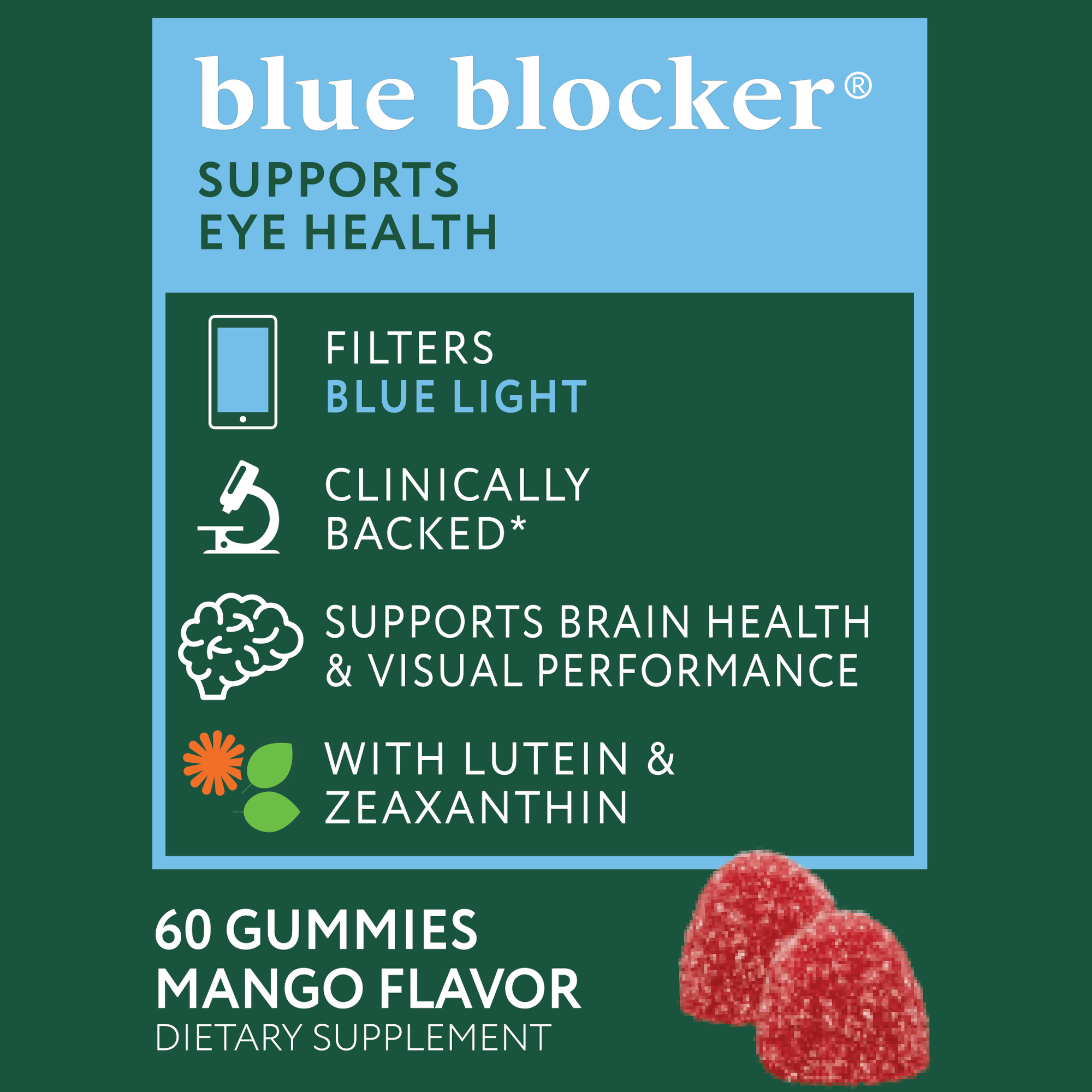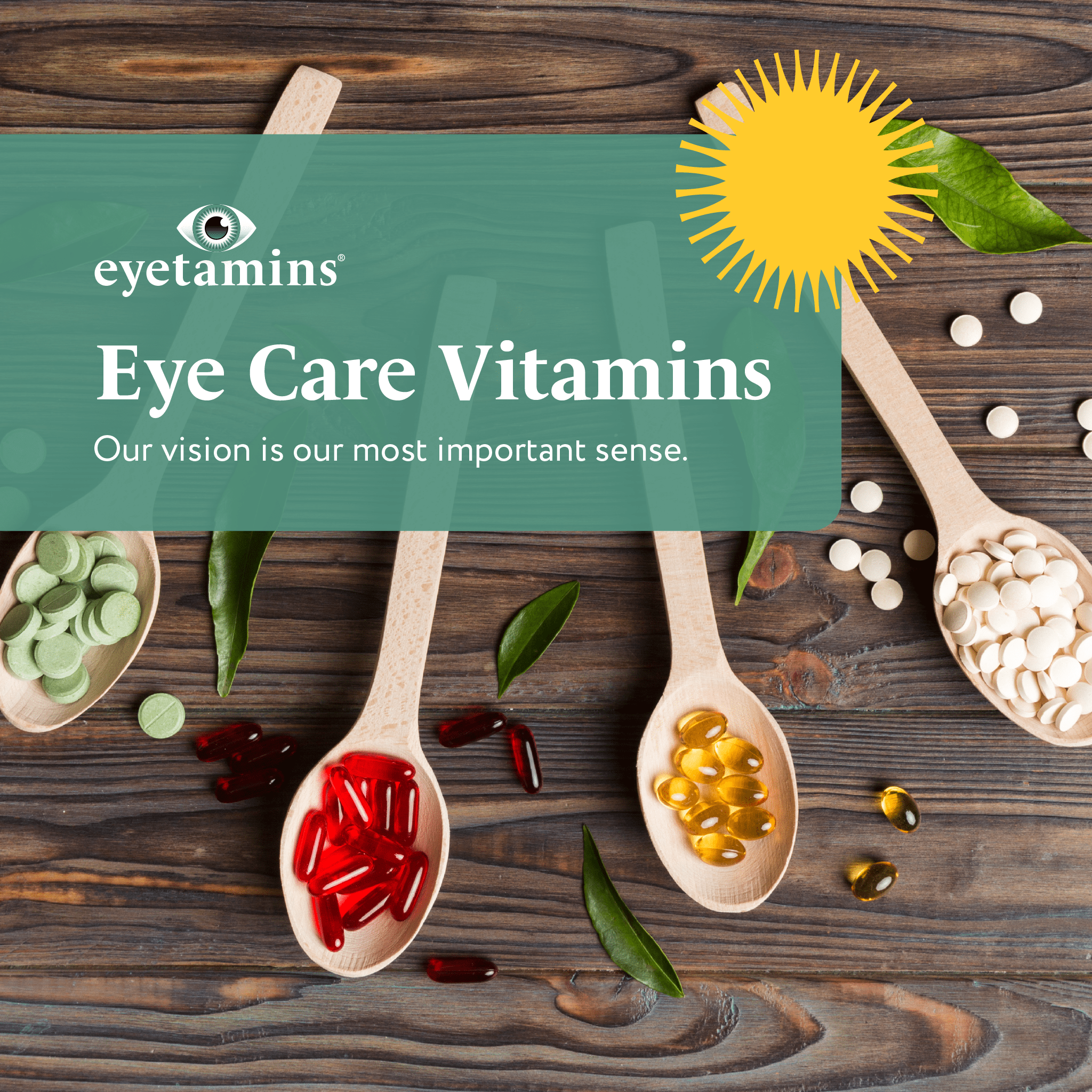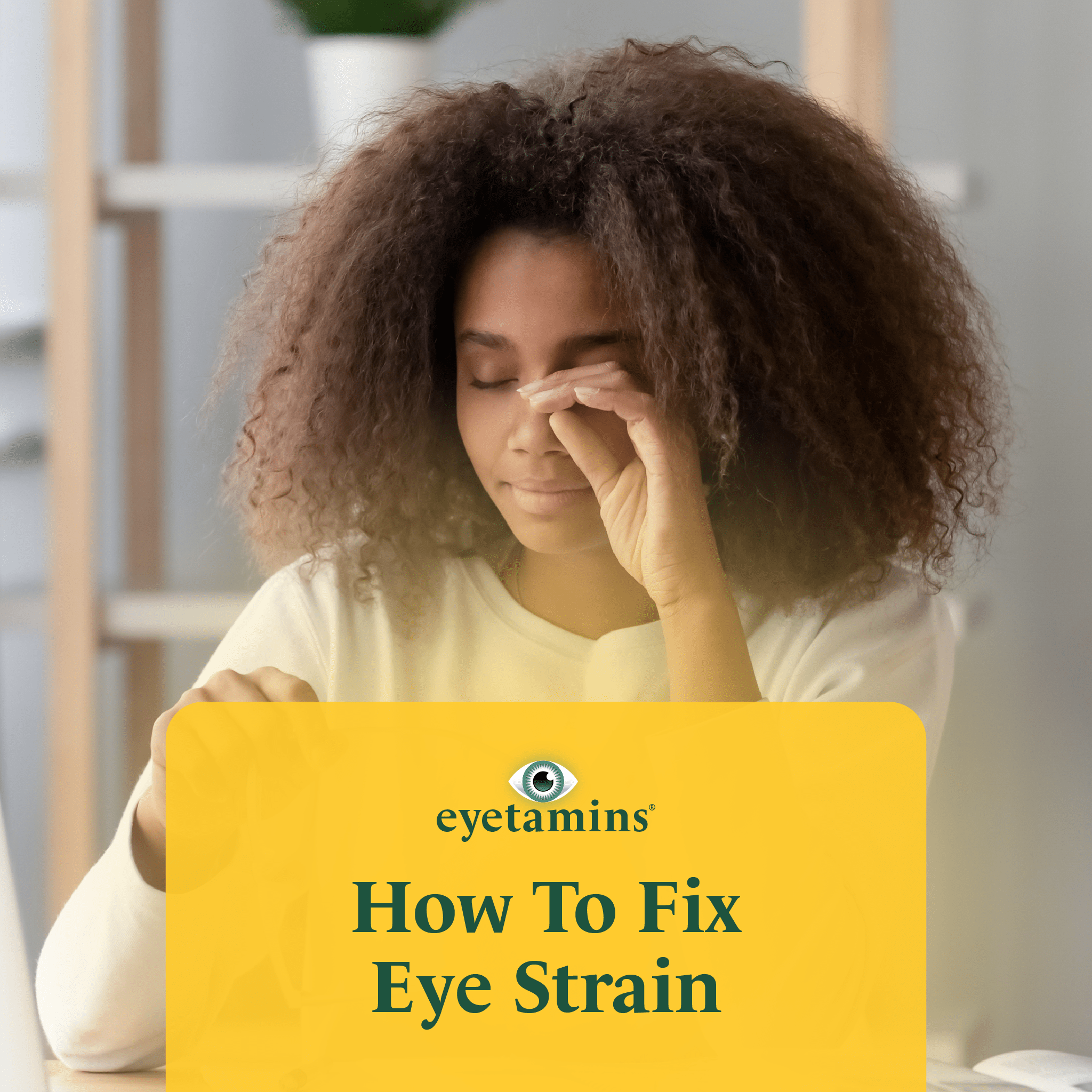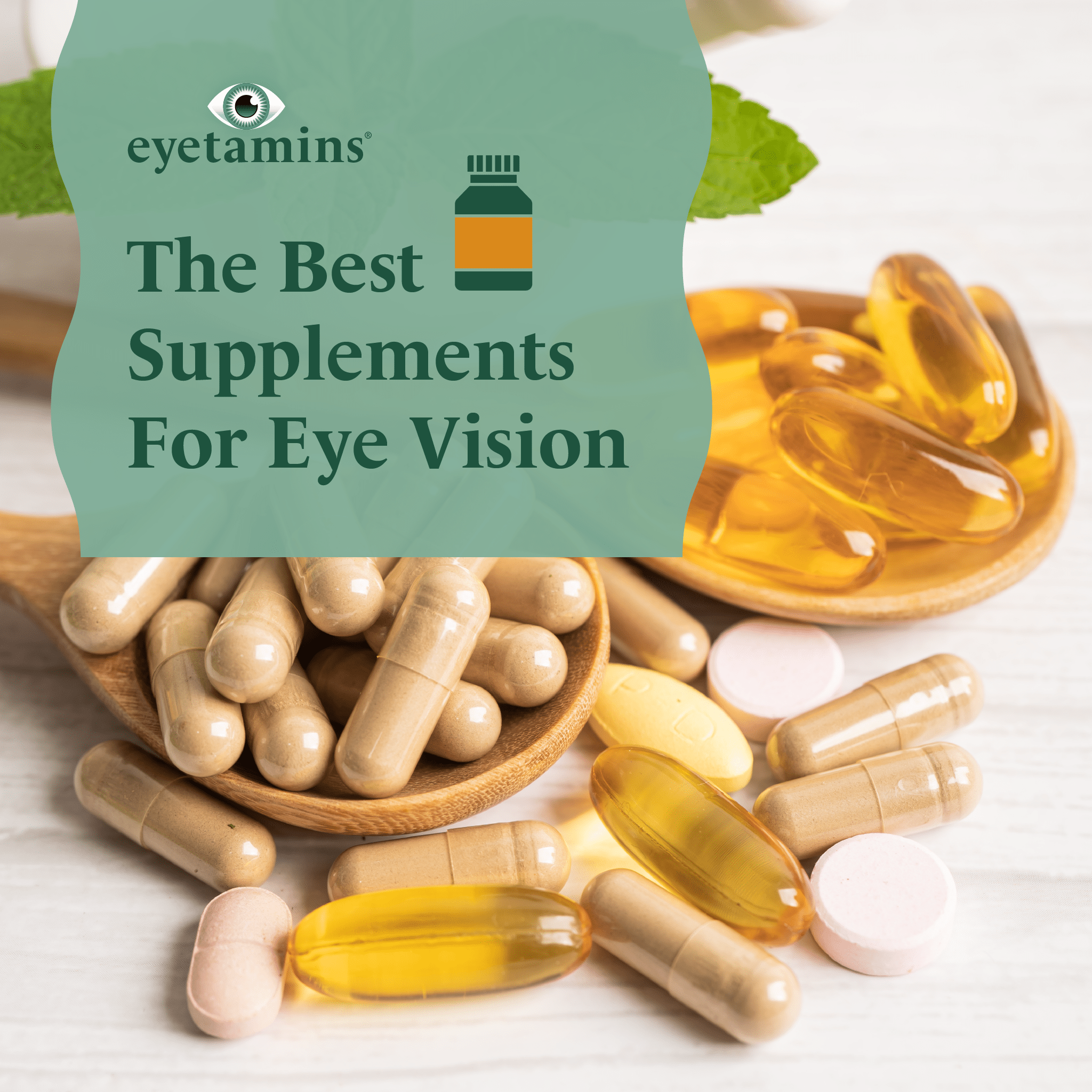· By Dr. Kaushal M. Kulkarni, M.D.
14 Essential Vitamins for Eye Health
It’s incredibly important to provide your eyes with the nutrients they need. After all, once your eyes begin their age-related decline, there’s usually no turning back.
Fortunately, it’s simple to incorporate into your diet the most essential vitamins for eye health. In this article, we take a closer look at the 14 most important vitamins for keeping your eyes healthy, plus answer some of the most common questions about vitamins and eyes.

What the Science Says
Those familiar with the inner workings of the eye have long been singing the praises of certain vitamins. Unfortunately, there have been very few studies to support those praises. In recent years, the National Eye Institute has conducted two Age-Related Eye Disease Studies known as AREDS and AREDS2.
These studies tracked the effects different vitamins and supplements had on those affected by cataracts and age-related macular degeneration. The results were fascinating, and have prompted many in health-related industries to take a closer look at vitamins and their many benefits.
14 Best Vitamins for Eye Health
1. Vitamin C
- What It Does: Vitamin C helps your body produce collagen, a vital protein that adds structure to your eyes. There is also evidence that consistent doses of Vitamin C may help certain people with age-related macular degeneration.
- How to Get It: Vitamin C is prevalent in broccoli, kale, bell peppers, and various citrus and tropical fruits.
2. Vitamin E
-
What It Does: In the eye, vitamin E is extremely effective at protecting the cells of the eye from free radicals -- the unstable molecules that attack healthy tissues and lead to macular degeneration or cataracts.
- How to Get It: Foods rich in Vitamin E include salmon, leafy greens, avocados, cooking oils, seeds, and nuts.
3. Vitamin A
-
What It Does: Vitamin A is an immunity booster. In the eye, vitamin A helps with inflammation, keeps infection away, and has been studied in vision loss and macular degeneration.
- How to Get It: Sweet potatoes and pumpkins are excellent sources of Vitamin A, as are bell peppers and leafy greens.
4 - 6. Vitamins B6, B9, and B12
-
What They Do: These important vitamins are good for overall health, and deficiency may lead to certain eye or optic nerve diseases.
- How to Get Them: Vitamin B-specific supplements are popular and grocery store-shelf staples.
7. Riboflavin
-
What It Does: Riboflavin deficiency can lead to health problems, as the riboflavin protects against damaging free radicals.
- How to Get It: Lots of foods include riboflavin, including milk, beef, yogurt, oats, and some cereals.

8. Omega-3 Fatty Acids
-
What It Does: Omega-3 fatty acids are crucial for good eye health. They are also used to help dry eyes.
- How to Get It: Fish, soy, nuts, and olive oil are all excellent sources of omega-3 fatty acids.
9. Thiamine
-
What It Does: Thiamine deficiency can lead to serious brain and optic nerve conditions.
- How to Get It: Thiamine is found naturally in whole grains, fish, and meat. Some pastas, breads, and cereals also have thiamine as an addition.
10. Lutein
-
What It Does: Lutein is a carotenoid that collects in the eye’s macula and retina, and acts as a filter for sunlight and other light.
- How to Get It: Cooked greens such as kale, spinach, and collard greens are high in lutein.
11. Zeaxanthin
-
What It Does: Zeaxanthin is absorbed by the eye’s lens, macula, and fovea where it helps to construct a shield that protects the eye cells from sunlight and other harmful light sources.
- How to Get It: Like lutein, zeaxanthin is present in cooked vegetables like kale, spinach, and collard greens.
12. Zinc
-
What It Does: Zinc forms the visual pigments in your retina, and helps the eye to function properly. A zinc deficiency is a common reason for night blindness.
- How to Get It: Poultry and red meat are the most common sources of zinc, though zinc is also present in oysters, beans, and nuts.
13. Niacin
-
What It Does: Like other B3 vitamins, niacin is mainly used by the body to help convert food into energy. It also acts as an antioxidant.
- How to Get It: Niacin supplements should only be taken at the direction of a healthcare professional. However, the essential vitamin is naturally present in a number of foods, including peanuts, mushrooms, legumes, poultry, fish, and beef.
14. Copper
-
What It Does: The human nervous system depends on copper to function properly, and copper deficiency is a serious condition that could lead to vision loss.
- How to Get It: Oysters and other shellfish, potatoes, beans, and organ meats are all excellent sources of copper.
If you are worried about how to remember each of these 14 vitamins, then consider adding Vision Support by Eyetamins to your daily routine. Formulated after the AREDS2 study recommendations and containing the most essential vitamins, Vision Support is an ultra-strength eyesight and brain formula that offers a range of benefits.
People Also Ask
1. What is the best vitamin supplement for your eyes?
Your eyes depend on a number of different vitamins to stay healthy. A supplement like Vision Support is an easy and effective way to ensure you are consuming exactly what your eyes need.
2. Can eye vitamins improve vision?
Proper doses of the right vitamins can be very effective at reducing the risk of certain eye diseases and vision loss. However, even the healthiest vitamins cannot reverse loss that has already occurred.
3. Are eye vitamins beneficial?
Not only are vitamins like Vitamin A, Vitamin E, and copper beneficial to your eye health, but they are crucial for avoiding serious eye conditions such as vision loss and degeneration.
4. How can I improve my eye health?
The best way to improve your eye health is to stick to a balanced, vitamins-rich diet, and to make annual appointments with your ophthalmologist.
5. What is the best vitamin for eyesight?
Your eyes need a number of vitamins in order to stay healthy, including vitamin A, vitamin E, vitamin C, zinc, and omega-3 fatty acids, to name but a few.

